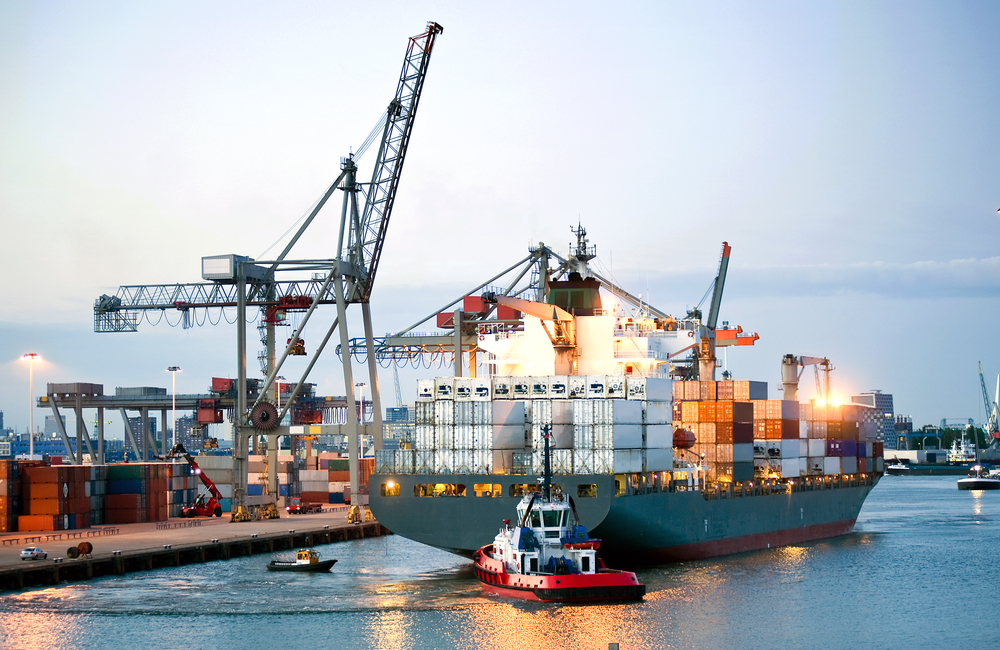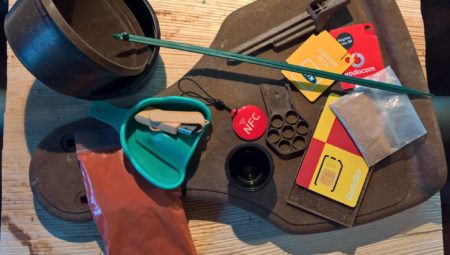He has been at the helm of Biobased Delta since April 2016, succeeding Willem Sederel, who now covers international affairs on the board. Zoetemeyer was Chief Technology Officer at Corbion for many years and also works as advisor for Cosun. The people on the board and the supervisory board of Biobased Delta are an enthusiastic and motivated group of experienced persons, in his opinion. Their good contacts with authorities, the business community, knowledge institutes and other relevant parties open doors right up to the highest level. ‘A good example is the construction of a large-scale biorefinery for wood chips in the port of Rotterdam. We have now found a party for it which is seriously interested in investing.’
Avantium
With the larger programmes of Sugar Delta, Redefinery and Biorizon (directed at biobased aromatic compounds), Biobased Delta certainly does not concentrate solely on large enterprises. ‘Smaller businesses can also take advantage of the developments in these programmes,’ Zoetemeyer emphasises. ‘Take companies like Avantium and Progression Industry, which are actively involved in Biorizon.’ According to Zoetemeyer, the regional development companies REWIN West-Brabant, InnovationQuarter and Impuls Zeeland play an important part in implementing the SME agenda of the Biobased Delta. Thus they chair the valorisation teams which provide support to SMEs in extracting value from their innovations. These teams have a good overview of the facilities, such as pilot plants, which can help SMEs to get their innovations closer to the market. Together with the regional development companies, Biobased Delta also organises annual business development days focusing on SME.
Natural fibres
Zoetemeyer and his colleagues of Biobased Delta concentrate particularly on creating synergy between the different provinces. ‘If I identify an interesting development in Zeeland which looks relevant for Brabant or South Holland, I arrange for the right contacts to be made.’ The managing director and his team also ensure that large and small companies connect. ‘Recently I brought Cargill into contact with Millvision, for possible cooperation on the development of biobased products based on natural fibres.’ The regional development companies also play a significant part in attracting the necessary funding for SMEs. After all, unlike Biobased Delta, the development companies have funds at their disposal for supporting the smaller enterprises so they can take the essential follow-up steps in their business operations.
Pyrolysis cluster in Moerdijk
One of the most tangible examples is Zeeland province’s voucher scheme, reopened last year and implemented by Impuls Zeeland. ‘SMEs can apply for a maximum of ten thousand euros,’ explains Peter Bijkerk, Biobased economy project manager at Impuls Zeeland. ‘Eight companies have made use of this, but the current scheme allows for a maximum of fifteen companies.’ ‘We do keep track of which subsidies are applied for with the regional development companies,’ says Zoetemeyer. ‘We also try to provide direction by focusing on themes. At the end of last year for instance, with the support of Biobased Delta, REWIN attracted the necessary European funding for the pyrolysis cluster in Moerdijk.’ Pyrolysis can be used to give disposable pallets and used plastic foil a second life, but also things like walnut shells, sewage sludge and other non-recyclable streams. Thermal recycling of these kinds of waste prevents them from disappearing into the incinerator, but valuable chemical building blocks can also be extracted from them.
Pilot plants
Partly thanks to Biobased Delta and the regional development companies, SMEs are gaining access increasingly often to locations where they can test their innovative ideas and produce on a semi-industrial scale, if necessary with the assistance of research institutes. Zoetemeyer presents a list of examples. ‘SMEs can use the facilities at PlantOne in Rotterdam, the Bioprocess Pilot Facility in Delft and the Bio Base Europe Pilot Plant in Ghent. These are mainly demonstration facilities on a larger scale. For smaller projects, SMEs can find help at application centres, such as the natural fibre and biopolymer application centres.’
Seaweed farms
According to Bijkerk, the SMEs which target the biobased economy in Zeeland are especially interested in practical applications, for example how to add biobased fibres to plastic. One place they can turn to is the “biobased garden” of the Rusthoeve in Colijnsplaat. There several parties are growing numerous crops which will be put to use in the biobased economy in due course. Regular inspiration sessions are organised especially for the SME. In addition to sugar beet, Bijkerk sees many opportunities for seaweeds as raw material for biobased applications. Indeed, he sees increasingly more ‘seaweed farms’ being established, which aim in particular at the high-grade and valuable components.
Step to the market
There is no shortage of SMEs in South Holland with good ideas concerning the biobased economy either, according to business developer Henk Vooijs of InnovationQuarter. ‘But taking that step to the market sometimes needs specific support. For example through incentive schemes, such as the Mkb-innovatiestimulering topsectoren Zuid-Holland (SME Innovation stimulation Top Sectors), to examine the feasibility of an innovation,’ he explains. A maximum of 25 thousand euros (40 percent of the costs eligible for a subsidy) is available for a feasibility study. Projects can be submitted from 11 April onwards. There is also the UNIIQ fund for helping entrepreneurs in South Holland to get their innovation on the market faster. It concentrates on bridging the risky ‘valley of death’ from start-up to fully-fledged business.
Biobased for SME
InnovationQuarter cooperates in projects together with businesses and regional organisations which are already working on them, such as municipalities, province and the Port of Rotterdam Authority.
The regional development company REWIN and the Brabant development company BOM likewise support SMEs in various ways. ‘In the Biobased for SME-project, with partners from England, Belgium, France and Germany we cooperate with the SME on several projects,’ tells business developer Dennis van der Pas of REWIN. ‘We stimulate the use of vouchers which SMEs can use in application centres.’ REWIN has vouchers available for amounts ranging from 4,000 to 100,000 euros. Last year, four companies made use of six vouchers. In addition to this, REWIN brings groups of entrepreneurs together so they can form a value chain. ‘In the six clusters, varying from packaging, pyrolysis, building and infrastructure to horticulture, coatings and pigments, we try to arrive at a business case with the entrepreneurs, so they can market their innovation successfully.





